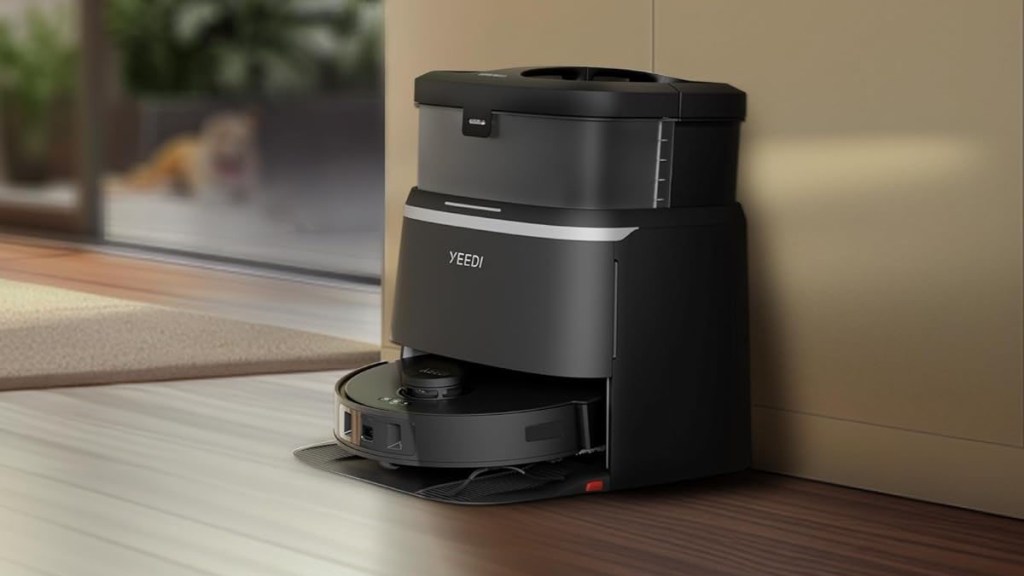Decluttering has become an industry in itself in recent years, with Hoarders prompting TV viewers to recoil in shock at the sight of dwellings stacked to the brim with stuff and Marie Kondo teaching readers The Life-Changing Magic of Tidying Up. Let there never be a doubt that a buck can be made off human slovenliness. But even with this glut there’s a place for The Gentle Art of Swedish Death Cleaning, the new Peacock series based on Margareta Magnusson’s book of the same name. With a big heart, self-knowing wit, and an efficiency you might expect from the title, the show comes not to shame people but to celebrate their resilience, one lifestyle makeover at a time.
Executive produced and narrated by Amy Poehler, Death Cleaning is also quite cheeky, especially for a show in which mortality is never far from the conversation. As Poehler puts it in her narration, the death cleaners, Johan, Katarina and Ella, excel at “cleaning out your crap so others don’t have to when you’re dead.” One of the contestants, Shana, actually has terminal lung cancer, and the cleaners help her not merely to fix up her residence but also to talk to her friends and family about what she needs, including a strong dose of openness and honesty. Or, as Katarina, the earthy, yoga-teaching psychologist of the trio, puts it: “We’re all born, and we’re all going to die. So let’s talk about it.”
More from Rolling Stone
Each cleaner has a different specialty. Johan, youthful and quietly snarky, is the designer, and Ella, an older woman with big, square, très chic eyeglasses, is the organizer. But their approach is holistic and team-oriented. The series has fun juxtaposing their Swedishness, their stoic good cheer and purpose-driven approach, with their chronically disorganized American clientele. As Poehler says, they work “with the efficiency that can only come from a country that gives its health care away for free.” But they’re also good on television, pithy but somehow genuine, especially compared to the canned personalities that clutter so much of the reality TV landscape.
Gentle Art manages to be frank and funny with its clutterers without stooping into condescension. And the show has some great characters with which to work. The first episode introduces us to Suzy, a 75-year-old stoner from Kansas City who clings to wardrobe, photos, and other remnants of her days as a resort comedienne and singer. She likes to collect. “I have a lot of penises,” she explains to Johan, showing off her collection of ceramics and other phallic artifacts. “You’re a gay man,” Johan tells her. Time to get rid of some penises, and plenty of other stuff. The team takes Suzy to a creative reuse shop, which gives the show a chance to remind us that about one percent of trash in Sweden ends up in a landfill. Then they donate much of her fabulous spangly wardrobe to a drag show, which she happily attends. Suzy is a little kooky, but she is also admirably down for whatever.
The series has more on its mind than most reality fare, and it grapples with big questions in an approachable way. Why do we cling to certain things, including outdated feelings and ideas? Why are we afraid of death? Why do we so often look backward instead of forward? How to clear the spiritual decks and lighten the load? Lindsey and her family, for instance, live in a house crammed with ugly furniture, creepy dolls, and hideous paintings passed down from previous generations. Why? Because she is expected to. She doesn’t want to disappoint anyone, and she’s scared of what it might mean to live her own life.
Gentle Art leans pretty hard into the idea that the cleaners are decluttering people’s souls along with their homes. However, to be fair, that’s kind of what they’re doing. Without getting too cute, or too dour, the series actually asks us to consider philosophical matters of life and death, as manifested by the ways and places in which we choose to live. This is no mean feat. The Gentle Art of Swedish Death Cleaning is certainly fun, and perhaps even occasionally cloying. But it also achieves an unexpected emotional resonance. It might even make you want to finally straighten out that long-neglected upstairs closet.
Best of Rolling Stone












